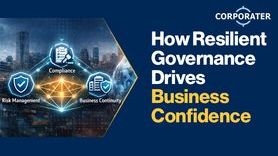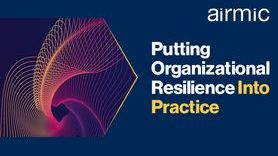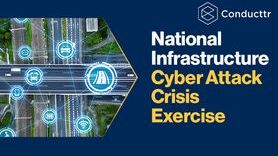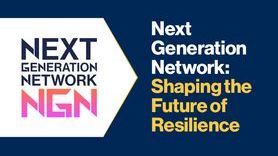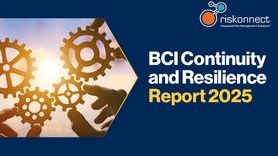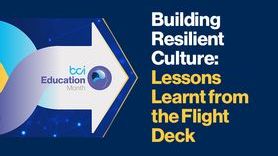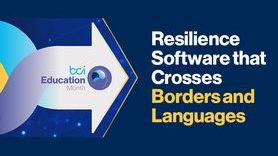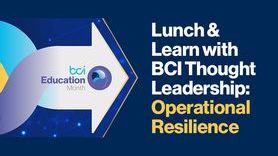New BCI Board Member: Willem Hoekstra FBCI
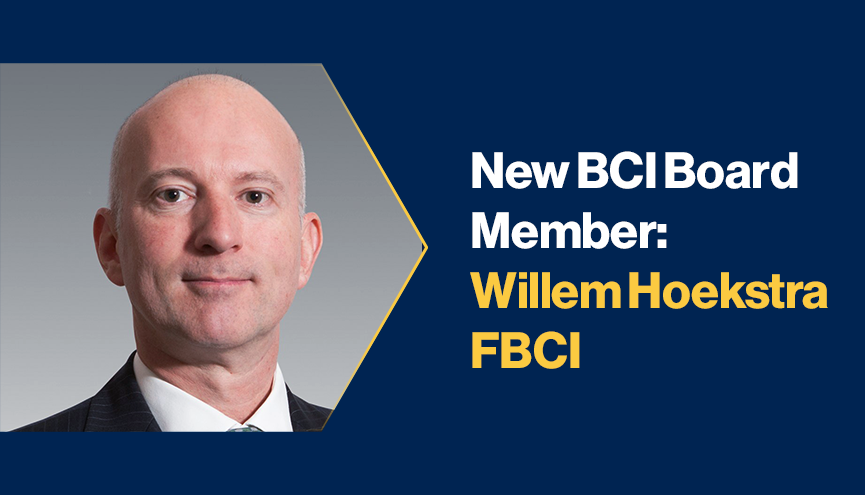
In this spotlight, The BCI is pleased to introduce Willem Hoekstra FBCI as a new Board Member. Here, we speak about what Willem brings to the board and the challenges he has faced so far in his Business Continuity (BC) & Resilience career.
Could you please tell us about your experience in the Business Continuity and Resilience sector and how you got into BC?
As I was waiting to start this interview, I went into my archive to look for the oldest material I could find. I found that back in 2004 I organized a crisis management exercise with the top management of ABN AMRO Bank on the theme of a pandemic - little did I know the situation we’d be in now. That was probably my first experience.
My background is in finance and accounting. Through this, I moved up to be a business manager for a COO. The COO was responsible for all sorts of areas, including finance, but also compliance, operational risk and eventually BC, which was fairly new at the time.
After Y2K and 9/11, it started becoming a bit more mature. So, I was asked to run BC for the corporate and investment bank in the Netherlands. Apparently, I did a good job with that because, before I knew it, I was a global manager of BC for the same bank. That's how I entered the sector.
What role has The BCI played in this journey?
I remember the BCI held their annual conference in the Netherlands early on and, since I was the BC manager for the largest bank in the Netherlands, they asked me to present the keynote speech. I'm still very proud that I was invited, as it was quite an honour to make that presentation.
Ever since, the BCI has played an important role in my life. I've always been a member and I've always been supporting it. For me, the BCI is important as it is a membership organization which supports its members. If you compare it to other institutes that are available, they often focus more on selling training courses. However, the BCI is not an institution that is there to just support itself. We have BCM professionals as members, and we help each other. Of course, you need a headquarters for that, but this is still in support of the overall objective.
With regards to the role the BCI has played, first of all it is important to note that the institute can provide professional gravitas and add weight to the BCM function – by showing that it's not something that I invented or that is unique to our company. Instead, it's a profession that is globally recognized. Certification and training are part of this, while good practice guidelines are also extremely important in that you have a standard to which you can refer. In addition, the social aspect is essential as you can meet other people and network.
I've been the chapter leader for Hong Kong for the past decade. In this time, I’ve always supported the BCI.
What has been some of your greatest challenges and successes in this industry?
I think one of the biggest challenges is the recognition of BC as a profession. Still too often, we see that if there's a vacancy for BCM, many people go “well, I know this person who did something in IT, why don't we make them responsible for BCM.” This is such disrespect for a profession that requires somebody with relevant experience.
Unfortunately, I think over the years I've seen this getting worse, not better. The role is less respected, so increasingly more junior people get hired. I think that this has been one of the triggers for the development of Operational Resilience (OPRES).
I am one of those people that says OPRES is BC done well. However, the caveat is that it really should be done well and it hasn't been done well for a long time. It has been very fragmented. For example, some authorities still insist that a response is about evacuating the building and going to a recovery site. However, the way we work now after COVID is that we have a primary site and we have a second primary site. They're both primary sites and we just split the team into parts - with this now relevant on a permanent basis. Rather than having a main site and a backup site, there's just resilience. We have to move away from the outdated and simplistic views on BC and we have to move towards business resilience.
Looking at personal challenges, I was previously responsible for a French bank, and we had a large office in Tokyo during the Fukushima disaster, which saw a huge earthquake followed by a tsunami impacting a nearby nuclear power plant. There was much devastation in the north of Japan but not in Tokyo, where the main disruption was to the power supply because of the issues affecting the power plant. As a result, they announced load shedding schemes, which was a material problem for the bank I was working for. Normally, in Tokyo the power supply is extremely robust and reliable, therefore not many buildings had generators.
So, we didn't have a generator and there would be power outages. Did we anticipate this exact problem? Of course not. It was an earthquake, followed by a tsunami, ending up with concerns about nuclear radiation. We did have a recovery site in Yokohama with a generator, so we could relocate out of the building if necessary.
Although, the biggest problem started when people started being afraid of potential nuclear radiation. The Japanese authorities said it was safe as the radiation levels were very low. However, the American authorities advised on leaving the country, while the French followed suit by saying that pregnant women were advised to leave the country. This, again, is not something we anticipated. We did not have a specific plan for nuclear disaster followed by an exodus of expat staff. However, we did have a plan for people outages. This shows an important lesson - you don't have to predict exactly what goes wrong, but you should have a continuity plan for when there's an unavailability of people, IT, buildings, or vendors. In this case, we needed a plan for unavailability of people, and we had that through emergency succession plans.
I still consider this as one of the biggest challenges I have faced in my career, but one where BCM proved to be useful.
Why did you decide to join the BCI Board?
When I nominated myself, it seems some of what I spoke about resonated with some of our members. What I want to stand for is that the BCI should be an organization led by the members, for the members.
The objective should not necessarily be to grow the organization for the purpose of growing the organization. We should carry out all these activities for the good of the members - supporting members in the execution of their work as a professional and as a practitioner of BC.
From my side, I was also encouraged to join the board with support in Asia as the BCI is about members across the globe. In Asia, we have a different time zone, and the institute should be welcome to us as well. A lot of people have encouraged me to contribute to creating and continuing that awareness.
We want to be an inclusive organization where members around the world are welcome. This means thinking about things like payment in international currencies, the time zones of BCI presentations, the practicalities of sharing membership information, etc.
What strengths and experience will you bring to the BCI board?
I’ve been in the BCI for nearly 20 years, and I have always been a strong supporter. I understand the organization and know a lot of people in the organization. I've also been active in other not-for-profit boards, as well other organizations. For example, I've spent around three years working on the board of the Gay Games here in Hong Kong. Having experience within not-for-profit organizations or within corporate boards will hopefully be useful when joining this one.
What excites you about the future of this sector?
Operational Resilience. I think the concept of Operational Resilience is effectively a reboot for the industry. I think the BCI can and should play a very strong role in this.
I think we have an opportunity, and we should grab that opportunity with Operational Resilience to move onto Business Continuity 2.0 and the BCI should play a significant role in that. Without getting caught up in terminology, I think we already have a tagline for the BCI, that ‘we are leaders towards resilience.’
There may not be such a thing as a unified best practice, but we can probably agree on good practice. The BCI can be the institute to funnel this and provide guidance and direction to the development of the Operational Resilience movement.




